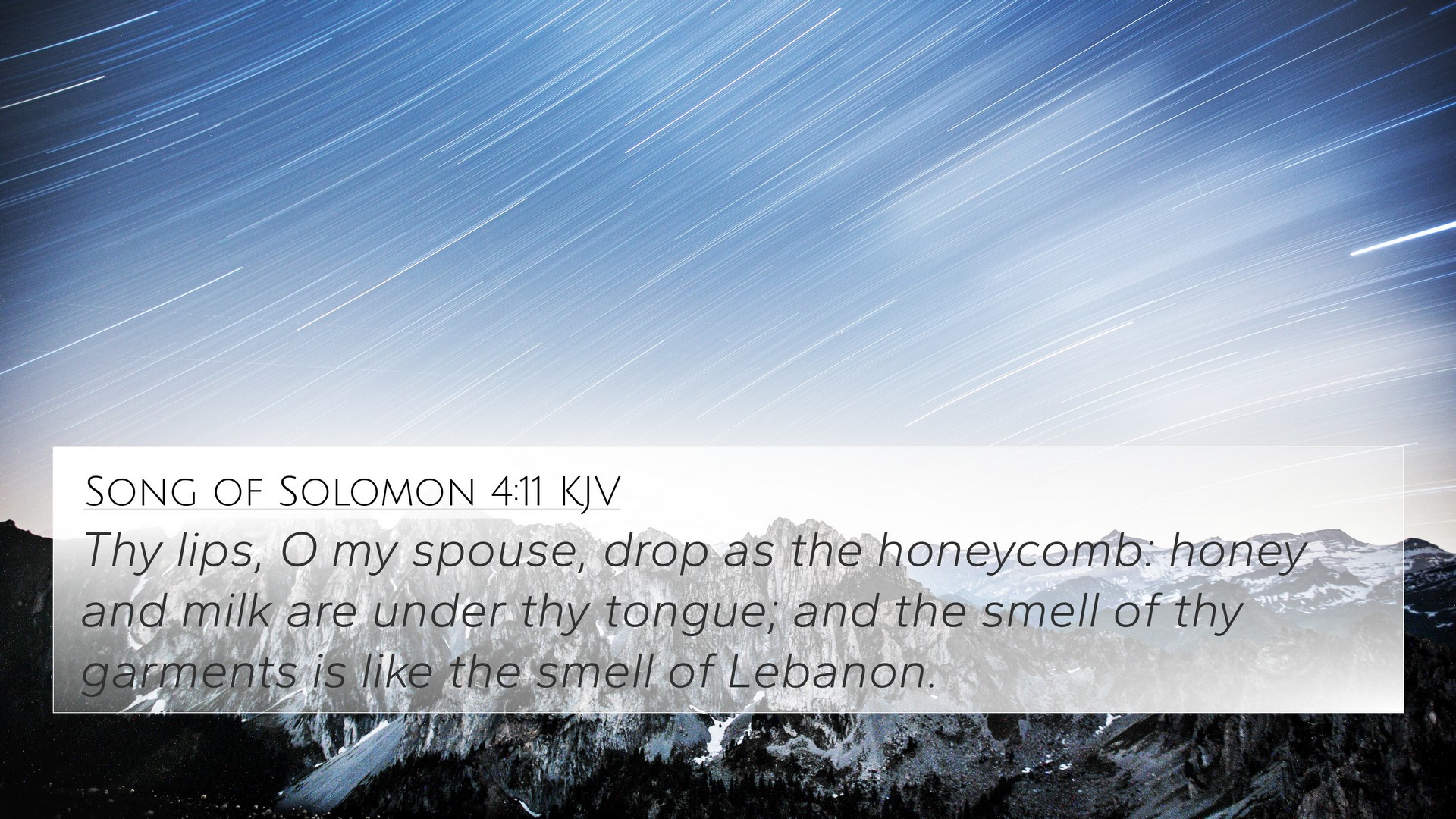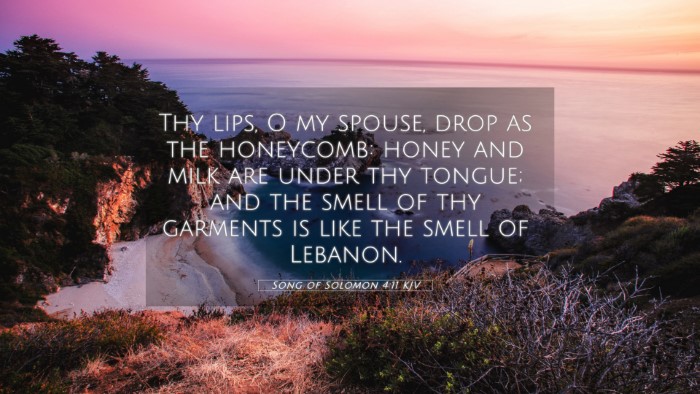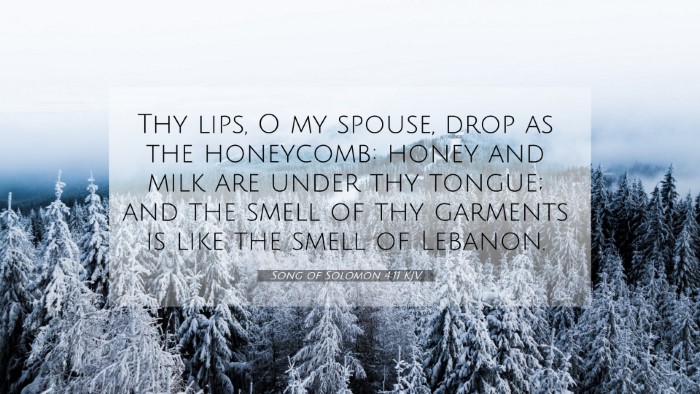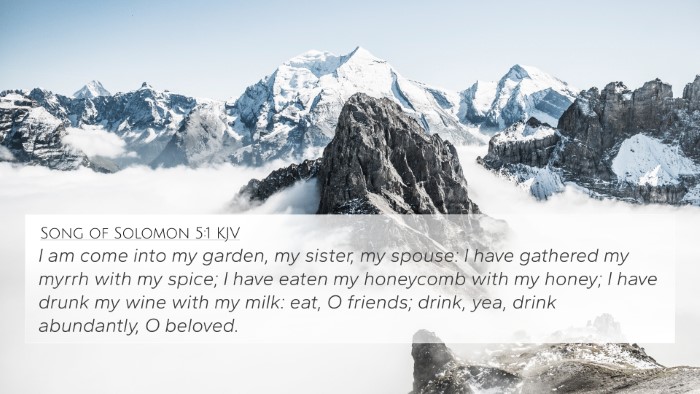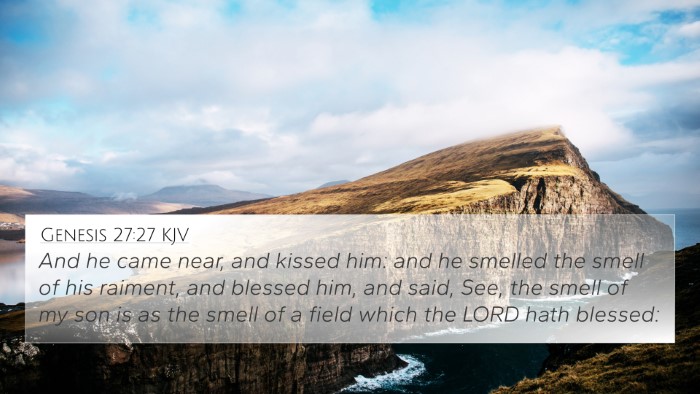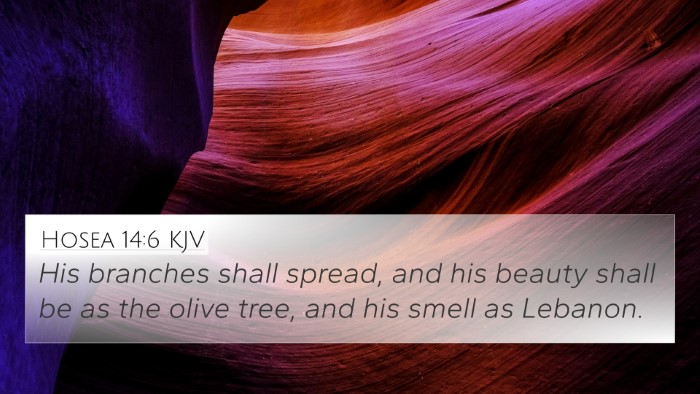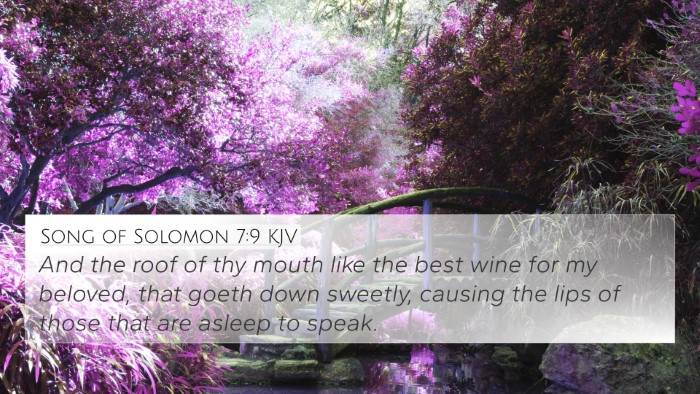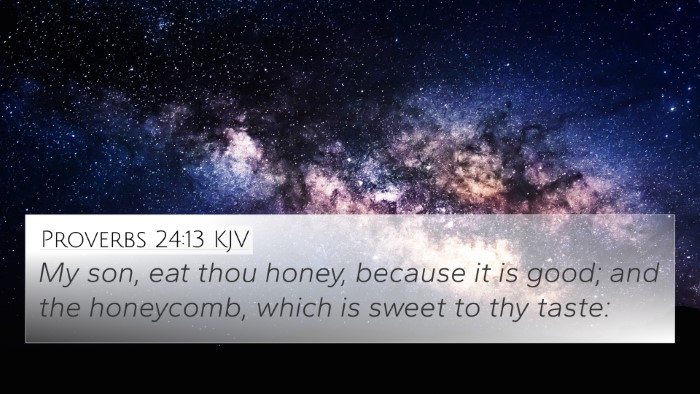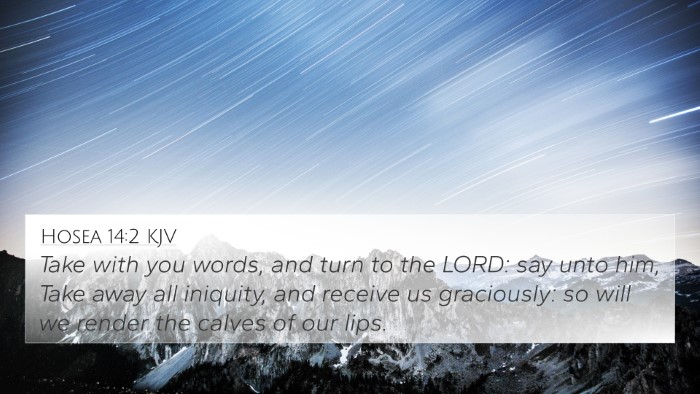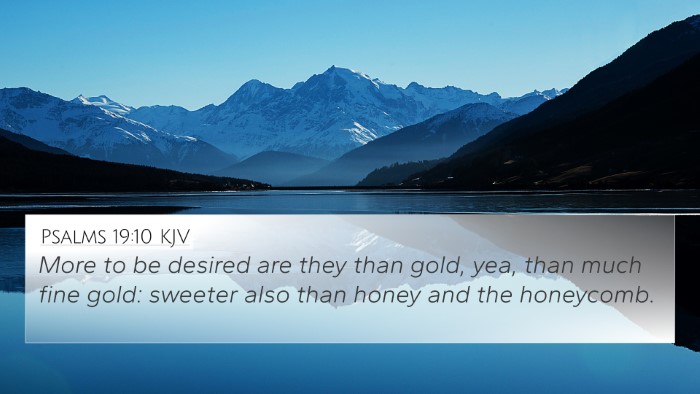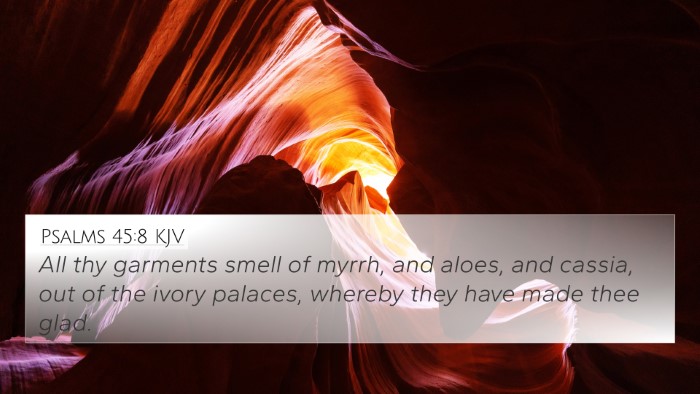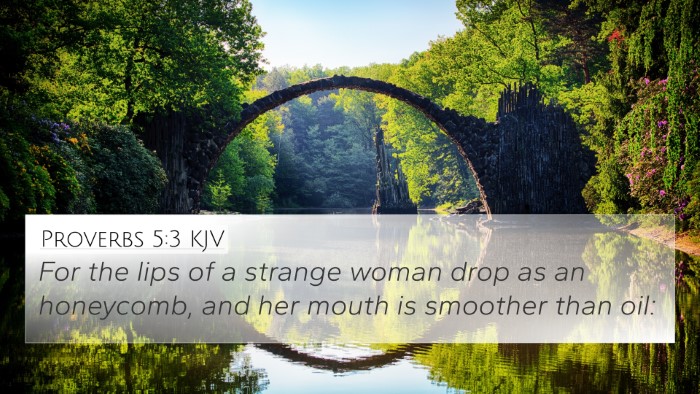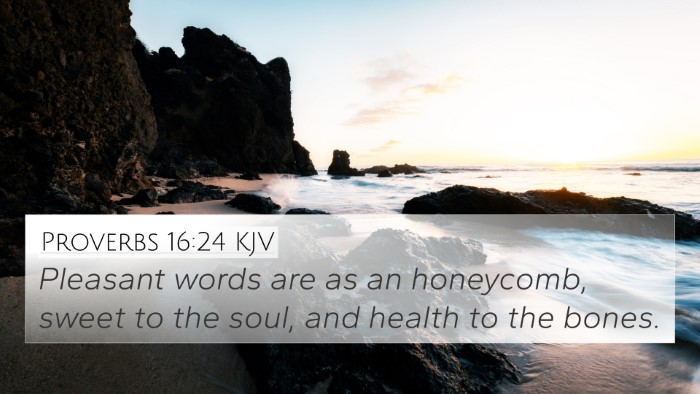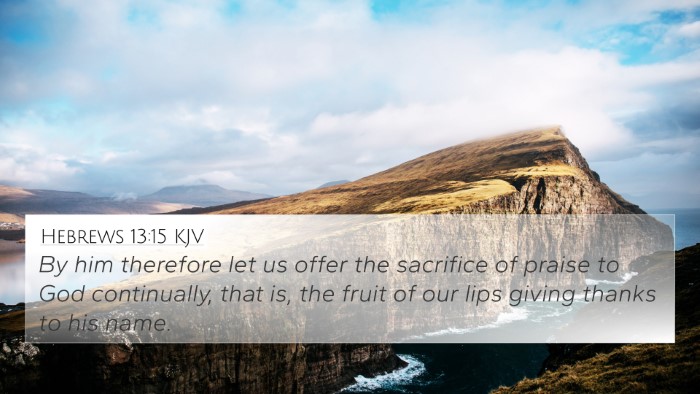Analysis of Song of Solomon 4:11
The verse reads: "Thy lips, O my spouse, drop as the honeycomb: honey and milk are under thy tongue; and the smell of thy garments is like the smell of Lebanon."
This verse is situated within the rich, romantic poetry of the Song of Solomon, a book that celebrates love, desire, and beauty. The speaker (often interpreted as the beloved) expresses admiration for the physical and spiritual qualities of their partner.
Meaning and Interpretation
-
Lips as a Source of Delight:
Commentators like Matthew Henry emphasize the significance of the lips as a symbol of communication and affection. The comparison of the beloved's lips to a honeycomb speaks to their sweetness and the nourishment they provide, both emotionally and spiritually.
-
Honey and Milk:
The imagery of honey and milk is rich with connotations of abundance and pleasure. Albert Barnes notes that these substances are often associated with the Promised Land, symbolizing sweetness and fertility. They may also signify the richness of love shared between the couple.
-
Perfumed Garments:
Adam Clarke highlights the significance of scents in conveying allure and attraction. The smell of Lebanon invokes images of grandeur and beauty, suggesting a lover whose presence is desirable and captivating.
Thematic Connections to Other Scriptures
This verse can be cross-referenced with several Biblical texts that explore similar themes of love, beauty, and intimacy, which establish a deeper understanding.
-
Proverbs 5:18-19:
"Let thy fountain be blessed: and rejoice with the wife of thy youth. Let her be as the loving hind and pleasant roe; let her breasts satisfy thee at all times; and be thou ravished always with her love."
-
Psalm 104:34:
"My meditation of him shall be sweet: I will be glad in the LORD."
-
1 Corinthians 13:4-7:
"Charity suffereth long, and is kind; charity envieth not; charity vaunteth not itself, is not puffed up... Charity never faileth."
-
Isaiah 55:1:
"Ho, every one that thirsteth, come ye to the waters, and he that hath no money; come ye, buy, and eat; yea, come, buy wine and milk without money and without price."
-
Song of Solomon 1:2:
"Let him kiss me with the kisses of his mouth: for thy love is better than wine."
-
Revelation 21:6:
"...I will give unto him that is athirst of the fountain of the water of life freely."
-
Philippians 4:8:
"Finally, brethren, whatsoever things are true, whatsoever things are honest, whatsoever things are just, whatsoever things are pure, whatsoever things are lovely... think on these things."
Conclusion
The analysis of Song of Solomon 4:11 embodies not just the passionate expression of romantic love but also highlights the intertwining of physical attraction and spiritual intimacy. Understanding this verse enhances our appreciation for the complex nature of love as depicted throughout Scripture.
Further comparative study with the aforementioned verses illuminates recurring themes of love, desire, and divine parallels, providing a robust framework for interpreting Biblical texts and their interconnectedness.
